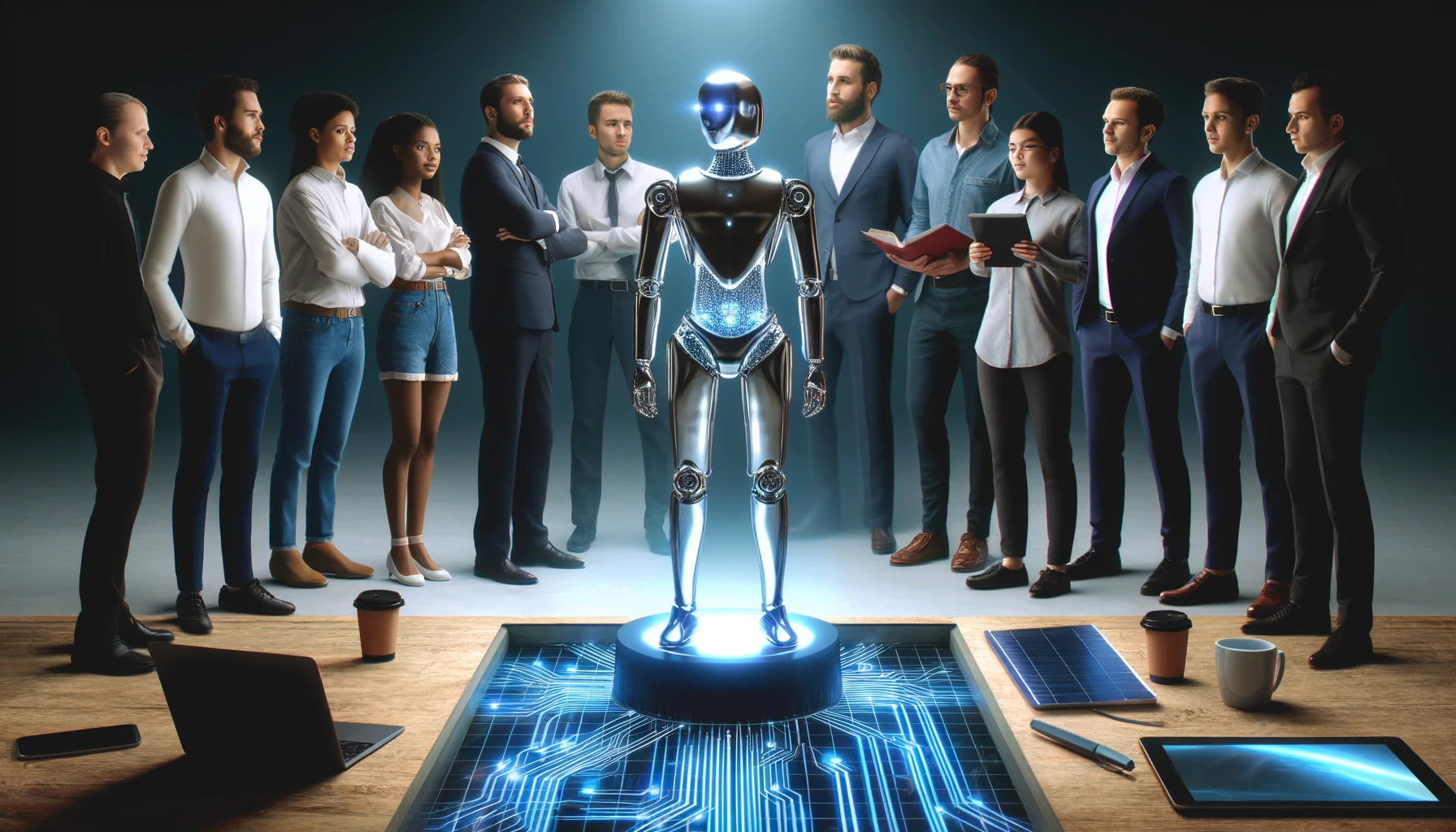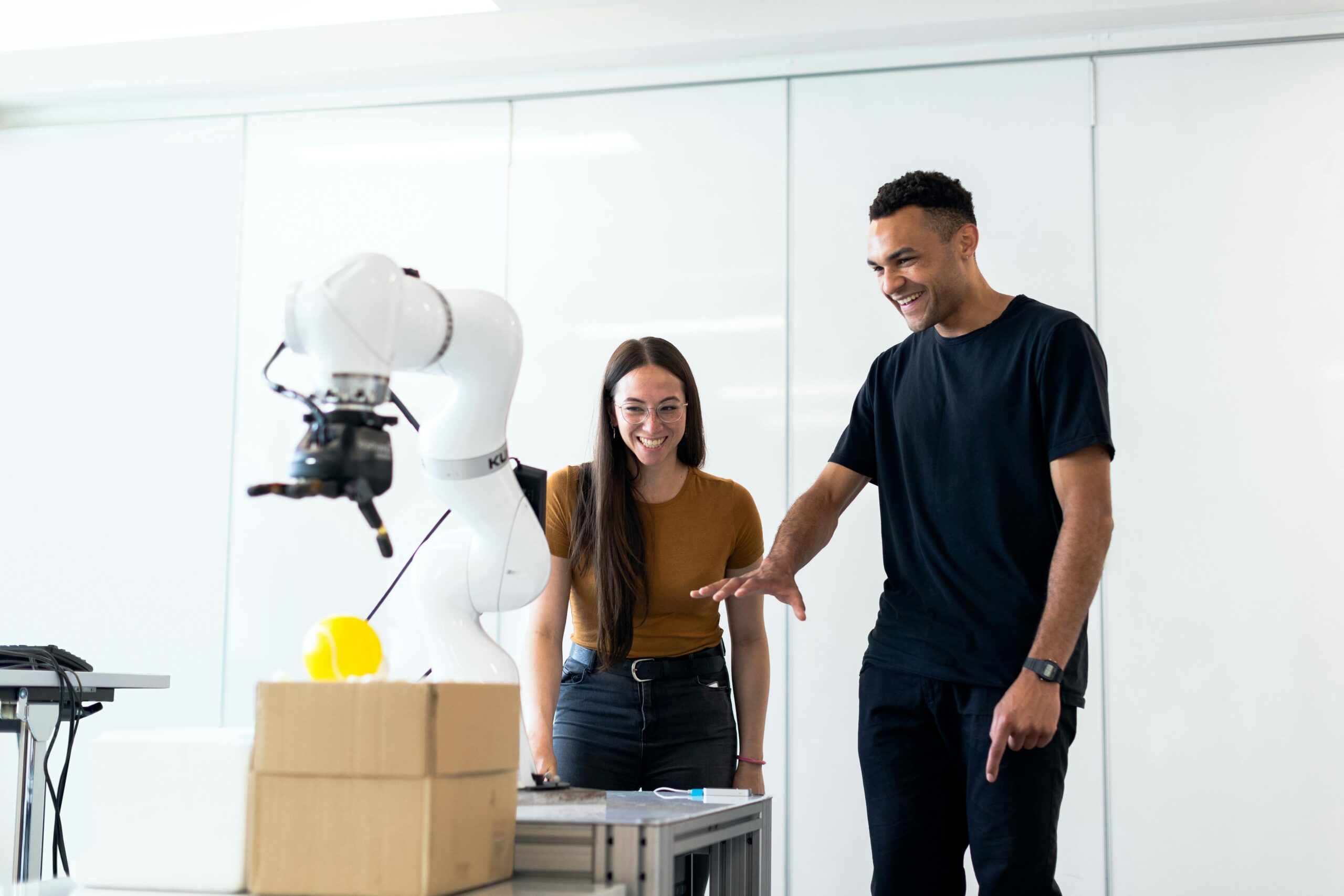
How Will AI Impact Job Market in Future
As AI technology processing becomes more sophisticated, a question arises in the minds of many professionals: how will AI impact the job market, especially for software developers? This article explores the changes AI might bring to the software development job market and offers insights on strategies CEOs and CTOs of startups can employ to navigate these changes effectively.
New Job Titles
The evolution of AI has not only introduced innovative tools but also spearheaded the creation of new roles and job titles, notably the emergence of AI developers and the position of Chief AI Officer (CAIO). The demand for AI developers has seen a significant upsurge. This surge is reflective of the expanding landscape where AI is no longer a niche but a central pillar in software development strategies.
According to Statista, in 2023, approximately 87% of developers who had not utilized generative AI tools for their development tasks reported that they were able to concentrate on fulfilling and meaningful work. This marks a substantial increase from just 50% of developers who had not engaged with generative AI tools previously. The role of AI developers involves not just coding but also designing AI models that can learn and adapt, making software solutions more intuitive and user-centric.
The introduction of the Chief AI Officer role marks a significant strategic shift in organizations, emphasizing the importance of AI at the executive level. CAIOs are tasked with overseeing the AI strategy of a company, ensuring its alignment with business goals, and navigating the complex ethical landscape of AI deployment. This role underscores the recognition of AI’s transformative potential and the need for dedicated leadership to harness it effectively.
Skill Shift
As AI becomes more integrated in software development, the skill set demanded of developers is evolving. Beyond traditional coding capabilities, a comprehensive grasp of AI and machine learning concepts is becoming crucial. The Future of Jobs Report by the World Economic Forum highlights the increasing importance of skills such as analytical thinking, innovation, and technology design. Moreover, soft skills like creativity, problem-solving, and adaptability are being prioritized, pointing to a broader change in the competencies valued in the software development domain.
Job Displacement
The efficiency and error-reduction capabilities of AI, while beneficial, bring the potential for job displacement, particularly in roles focused on tasks susceptible to automation. According to a report by McKinsey & Company, automation through AI is set to affect between 400 million and 800 million jobs globally by 2030, with a significant portion of these impacts felt in fields involving routine coding, testing, and debugging tasks. This shift highlights the need for professionals to adapt to the evolving landscape where repetitive and structured tasks are increasingly managed by AI technologies.
Strategies for Startups to Thrive in AI World
Below are expanded strategies for startups aiming to thrive in this AI-driven era.
Upskilling and Reskilling
The cornerstone of staying relevant in the face of AI advancements is the cultivation of a culture with continuous learning and skill development. Startups must prioritize upskilling (enhancing current skills) and reskilling (learning new skills) initiatives for their teams to keep pace with technological changes. This approach not only equips employees with the latest knowledge and tools but also fosters an adaptable and innovative workforce capable of navigating the complexities of AI integration.
Encouraging employees to engage in continuous learning can be achieved through various means, such as offering access to online courses, workshops, and seminars focused on AI and related technologies. Furthermore, creating an environment that encourages experimentation and learning from failures is crucial. By incentivizing risk-taking and innovation, startups can harness the expertise of their teams to explore new applications of AI within their operations and product offerings.
Innovation and Adaptation
The dynamic nature of AI technology calls for a flexible and forward-thinking approach to business strategy and product development. Investing in AI research and development (R&D) is essential for creating proprietary tools or processes that can offer startups a competitive advantage. This investment should not be seen purely as a cost but as a strategic venture that could yield significant dividends in terms of operational efficiency, customer satisfaction, and market differentiation.
Adapting to leverage AI technologies requires a keen understanding of both the potential applications of AI in one’s industry and the startup’s specific operational needs and challenges. This might involve integrating AI to automate routine tasks, employing advanced data analytics for better decision-making, or developing AI-driven products and services that meet emerging market needs. Startups must remain agile, constantly evaluating and adjusting their AI strategies in response to technological developments and market feedback.
Strategic Hiring
As AI reshapes the business landscape, the demand for professionals with AI expertise and a strong foundation in problem-solving and adaptability skills has surged. Strategic hiring practices are crucial for assembling a team capable of working alongside AI technologies and driving innovation. This involves not only identifying candidates with technical proficiency in AI but also those who exhibit critical thinking and adapting quickly.
To attract and retain top talent in this competitive field, startups must offer more than just competitive compensation. Creating a work environment that values diversity, encourages collaboration, and gives opportunities for growth and leadership in AI initiatives can differentiate a startup as an employer of choice for ambitious professionals.
Case Studies: Startups Successfully Integrating AI
Numerous startups have harnessed the power of AI to revolutionize their operations and product offerings. These companies have not only adapted their workforce to work alongside AI but have also pioneered new ways of engaging with technology, setting a benchmark for innovation and adaptability in the tech industry.
How PathAI benefits from AI Implementation?
PathAI stands as a paragon of AI’s transformative potential in the healthcare industry. This startup leverages AI to enhance the accuracy and efficiency of diagnosing diseases, with a particular focus on pathology. PathAI’s AI-driven platform assists pathologists in analyzing tissue samples, significantly improving the speed and reliability of diagnoses. This not only optimizes patient outcomes by enabling faster and more accurate treatment plans but also demonstrates the critical role AI can play in augmenting human expertise in complex fields. PathAI’s success is marked by its collaborations with major pharmaceutical companies and healthcare providers, showcasing the startup’s ability to address critical challenges in pathology through AI.
How Kuki benefits from AI Implementation?
In the realm of customer service and engagement, Kuki utilizes AI to redefine the way businesses interact with their customers. Kuki’s AI-powered chatbots provide 24/7 customer service, handling a wide number of queries with remarkable accuracy and human-like empathy. This startup’s technology helps businesses improve customer satisfaction by ensuring that help is always available, reducing wait times, and personalizing interactions based on previous engagements. The efficiency and scalability offered by Kuki’s AI solutions have made it a valuable tool for startups and organizations looking to improve their customer service operations without significantly increasing overhead costs.
Conclusion
AI’s impact on the software development job market is undeniable, bringing both challenges and opportunities. By embracing change, focusing on continuous learning, and fostering innovation, startups can navigate the AI-driven landscape successfully. The future of software development is not just about competing with AI but learning how to coexist and thrive alongside it.
At Bewort, we understand the challenges of the AI-driven job market and offer comprehensive solutions, from AI development to recruiting AI-savvy talent. Embrace the future of software development with us. Contact our managers and let’s lead the way in creating a more efficient, innovative, and humane tech landscape.
FAQ
What impact does AI have on software development jobs?
AI is transforming the software development industry in several ways. It automates routine tasks like coding, testing, and debugging, which can lead to job displacement in those areas. However, it also creates new opportunities by generating demand for roles focused on AI development, data science, and system maintenance. Additionally, the integration of AI necessitates a shift in the skill set required for software developers, emphasizing AI literacy, system design, and soft skills.
How can startups prepare their workforce for AI-driven changes?
Startups can prepare their workforce for AI-driven changes by fostering continuous learning and adaptability. This includes investing in upskilling and reskilling initiatives, encouraging team to stay updated of the latest AI technologies and methodologies, and promoting a mindset open to innovation and experimentation.
Are there new roles emerging because of AI in software development?
Yes, the rise of AI in software development has led to the emergence of new roles and job titles. These include AI and machine learning engineers, data scientists, AI ethics officers, and roles focused on overseeing the integration and application of AI technologies within existing systems, such as the Chief AI Officer (CAIO).
How does AI affect the hiring practices of startups?
AI affects the hiring practices of startups by shifting the focus towards candidates who possess a blend of technical skills in AI and machine learning, along with strong problem-solving capabilities and adaptability. Startups are now looking for talent that can not only code but also understand and work alongside AI technologies, emphasizing creativity, strategic thinking, and the ability to learn quickly.
Can AI create more jobs than it displaces in the software development industry?
While AI automates certain tasks, potentially displacing some jobs, it also creates new opportunities that did not exist before. By automating routine tasks, AI allows developers to focus on more complex, creative work, leading to the creation of new roles in AI development, system design, and ethical AI governance. The net impact on job creation versus displacement will largely depend on how industries adapt to these changes and invest in employee upskilling.
How important are soft skills in an AI-driven software development job market?
In an AI-driven job market, soft skills such as creative problem-solving, adaptability, and strategic thinking become increasingly important. As AI handles more of the technical, routine tasks, the value of human insight, creativity, and the ability to navigate complex ethical and strategic decisions rises. These skills enable professionals to complement AI technologies, leading to more innovative and effective solutions.





